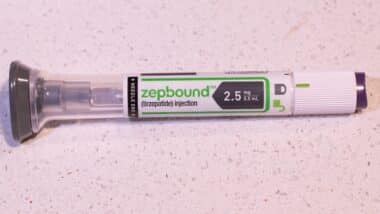 Moxifloxacin, usually sold as Avelox, is a very powerful antibiotic, but may carry the risk of life-threatening skin reactions such as Stevens Johnson Syndrome or Toxic Epidermal Necrolysis.
Moxifloxacin, usually sold as Avelox, is a very powerful antibiotic, but may carry the risk of life-threatening skin reactions such as Stevens Johnson Syndrome or Toxic Epidermal Necrolysis.
In fact, the National Institute of Health published a report in 2011 where a man taking Avelox developed both Stevens Johnson Syndrome and liver problems.
Avelox, like other fourth-generation quinolone antibiotics, is effective against a wide variety of both gram-negative and gram-positive bacteria. This means that Avelox can cut a wide swath through a variety of deadly, disease-causing germs.
The family of antibiotics that includes Avelox also includes Cipro, which briefly came to “fame” during the post-9/11 anthrax attacks, as Cipro was the only drug at the time that was approved to treat infections with Bacillus anthracis, or anthrax.
Since then, Avelox and other fluoroquinolone antibiotics have been approved to treat infection with this bacterium. However, fluoroquinolone antibiotics like Avelox may carry the risk of Stevens Johnson Syndrome.
Stevens Johnson Syndrome, or SJS, is a rare but serious reaction linked to a wide variety of drugs, including Avelox and other quinolone antibiotics. SJS is an autoimmune reaction, a condition wherein the immune system goes haywire, and attacks the patient’s own body.
In the case of Stevens Johnson Syndrome, the same immune cells which normally hunt down invading germs attack the largest organ of the body — the skin. SJS symptoms start with generalized symptoms seen in many illnesses. This includes fever, chills, and muscle aches. However, SJS symptoms rapidly escalate to include sores, blisters and ulcers.
Treatment is complicated by the fact that Stevens Johnson Syndrome is relatively rare and resembles other diseases early in the beginning stages. For example, the first symptoms generally resemble a moderate to severe case of the flu.
Even the early stages of the rash can be mistaken for viruses that attack the skin, including unusually aggressive cases of herpes, chickenpox, or shingles. However, full-blown SJS can be very dangerous, and complications can cause blindness, organ damage, and death. The most extreme cases can escalate to a related disorder called Toxic Epidermal Necrolysis.
Toxic Epidermal Necrolysis is an even more severe form of SJS. Generally, when SJS ulcers cover a certain percentage of the body, patches of skin die and slough off, leaving burn-like wounds. When more than 30 percent of the skin is affected, it is considered TEN. Thirty percent of patients with TEN may die from the reaction, a higher mortality rate than some strains of the Ebola virus.
The NIH case report described an SJS patient that was originally reported in The Journal of Clinical Gastroenterology and Hepatology. In this case report, a 45-year-old man was hospitalized with SJS after taking Avelox.
Doctors treated him with steroids. He had only been taking Avelox for nine days before he was rushed into the hospital. He also had liver problems, which concerned doctors but ultimately healed. It reportedly took several weeks for the patient to recover to the point that he could leave the hospital.
Do YOU have a legal claim? Fill out the form on this page now for a free, immediate, and confidential case evaluation. The attorneys who work with Top Class Actions will contact you if you qualify to let you know if an individual lawsuit or class action lawsuit is best for you. [In general, quinolone lawsuits are filed individually by each plaintiff and are not class actions.] Hurry — statutes of limitations may apply.
ATTORNEY ADVERTISING
Top Class Actions is a Proud Member of the American Bar Association
LEGAL INFORMATION IS NOT LEGAL ADVICE
Top Class Actions Legal Statement
©2008 – 2025 Top Class Actions® LLC
Various Trademarks held by their respective owners
This website is not intended for viewing or usage by European Union citizens.
Get Help – It’s Free
Join a Free Quinolone Class Action Lawsuit Investigation
If you or someone you know took Cipro, Levaquin, Avelox or another quinolone antibiotic and were diagnosed with liver failure, Stevens Johnson Syndrome (SJS) or toxic epidermal necrolysis (TEN), you may have a legal claim. See if you qualify by submitting your information below for a free and confidential case review.
An attorney will contact you if you qualify to discuss the details of your potential case at no charge to you.
Oops! We could not locate your form.












